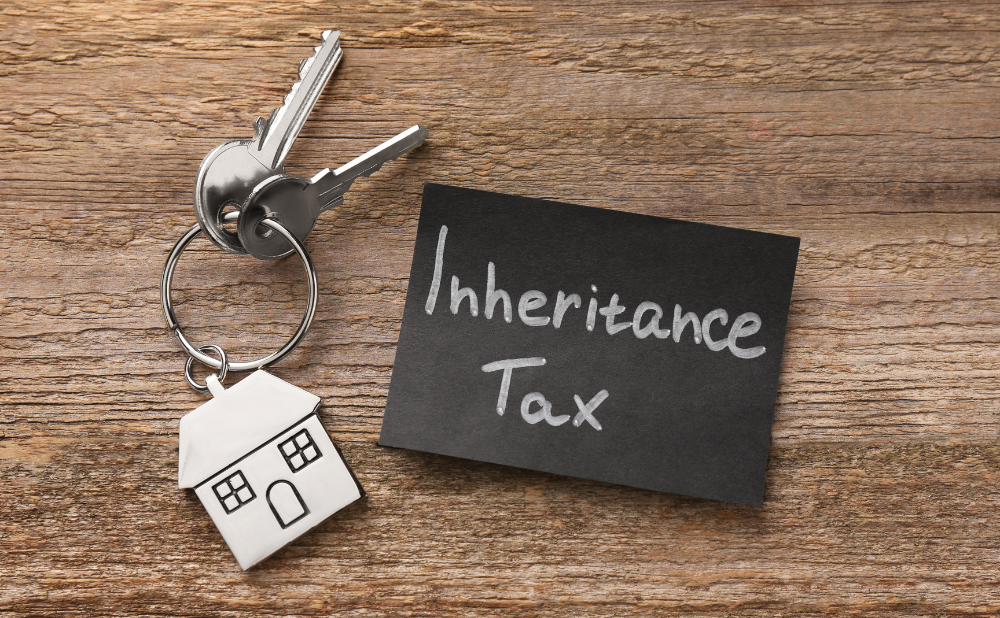Dealing with a loved one’s estate after their passing can be difficult. The Pennsylvania (PA) inheritance tax can add to the confusion. That’s why this article explains the PA inheritance tax to give you peace of mind.
Understanding the Pennsylvania Inheritance Tax
Pennsylvania is one of the few states in the United States that imposes an inheritance tax on certain assets inherited by beneficiaries. This differs from an estate tax, which taxes the estate before distribution.
What is Inheritance Tax?
Inheritance tax is a state tax that is levied on the value of assets inherited by beneficiaries, such as children, siblings, or other relatives. It’s a tax on the transfer of wealth from one generation to the next. The tax is paid by the beneficiary, not the estate.
How Does it Differ from Estate Tax?
Inheritance tax is often confused with estate tax, but they are not the same thing. Estate tax is a tax on the entire estate of the deceased person, before distribution to beneficiaries. In contrast, inheritance tax is a tax on the specific assets inherited by each beneficiary.
What Assets are Subject to Inheritance Tax?
In Pennsylvania, the following assets are subject to inheritance tax:
- Tangible assets: Cars, furniture, jewelry, and other physical items
- Intangible assets: Stocks, bonds, mutual funds, and other investments
- Jointly owned property: In some cases, jointly owned property, such as real estate or bank accounts, may be subject to inheritance tax
What You Need to Know:
- Inheritance tax is a tax on the transfer of assets to beneficiaries.
- It’s different from estate tax, which is a tax on the entire estate.
- Exemptions and exceptions exist, especially for transfers to surviving spouses and close family members.
- It’s essential to understand the rules and regulations surrounding inheritance tax in Pennsylvania to minimize the tax burden on your loved ones.
Who Pays the PA Inheritance Tax and How Much?
Typically, the person inheriting the assets is responsible for paying the inheritance tax in Pennsylvania. The tax rate varies depending on the beneficiary’s relationship to the deceased.
Tax Rates
As of January 2025, the tax rates are as follows:
- Direct Descendants: Children, grandchildren, and other direct descendants typically pay 4.5% of the inherited amount. If you’re a parent inheriting from a child who was 21 or younger, most often you don’t have to pay the inheritance tax.
- Siblings: Brothers and sisters usually pay 12% of the inherited amount.
- Other Beneficiaries: All other beneficiaries, including nieces, nephews, cousins, and friends, pay 15% of the inherited amount.
Exceptions and Exemptions
Fortunately, there are exemptions and exceptions to the inheritance tax in Pennsylvania. These include:
- Transfers to surviving spouses: Generally, transfers to a surviving spouse are exempt from inheritance tax.
- Transfers to close family members: Transfers to children, grandchildren, and siblings may be exempt or subject to a lower tax rate. It’s important to work with an attorney to determine exemptions.
- Charitable transfers: Transfers to qualified charitable organizations may be exempt from inheritance tax.
Important Notes About the PA Inheritance Tax
- Rate Changes: Tax rates can change due to changes in Pennsylvania law. It’s essential to check the Pennsylvania Department of Revenue site for updates. Or, check with your attorney or CPA.
Calculating and Filing Your PA Inheritance Tax
Calculating the inheritance tax in Pennsylvania can be a complex and overwhelming process. The Pennsylvania Inheritance Tax Return (REV-1500) provides guidance on the calculation process, but it can still be challenging to navigate.
Seeking Professional Help
To ensure accuracy and avoid costly mistakes, it’s highly recommended to consult with a qualified elder law or estate planning attorney. These professionals have extensive knowledge and experience in navigating the intricacies of inheritance tax law and can provide valuable guidance throughout the process.
Benefits of Working with an Elder Law, Estate Planning Attorney, & CPA
An elder law or estate planning attorney can help in several ways:
- Accurate Calculation: They can assist in accurately calculating the inheritance tax, ensuring that all applicable exemptions and deductions are taken into account.
- Return Preparation: They can prepare the Pennsylvania Inheritance Tax Return (REV-1500) on your behalf, ensuring that all necessary information is included and that the return is completed correctly.
- Software Assistance: They can help you navigate the suggested software on the Pennsylvania Department of Revenue website, making the filing process smoother and more efficient.
- Extension Requests: If needed, they can assist in requesting an extension to file the return, providing you with more time to gather necessary information and complete the return.
- Tax Planning Strategies: They can offer tax planning strategies to minimize the inheritance tax burden, ensuring that your loved ones receive the maximum inheritance possible.
Additional Resources
In addition to consulting with an elder law or estate planning attorney, you can also:
- Visit the Pennsylvania Department of Revenue Website: The website provides access to the REV-1500 form, as well as other resources and information on inheritance tax.
- Consult a Qualified Financial Advisor: If you have any questions or concerns, a qualified financial advisor can provide additional guidance and support.
Don’t navigate the complex world of inheritance tax alone. Consult with an experienced elder law or estate planning attorney to ensure that you’re taking advantage of all available exemptions and deductions, and that your loved ones receive the maximum inheritance possible.
Specific Situations and Exemptions: Understanding the Nuances of Inheritance Tax
Jointly Held Property
Jointly held property, such as real estate or bank accounts, can be subject to inheritance tax. However, the tax implications vary depending on the type of joint ownership:
- Joint Tenancy with Right of Survivorship: When one joint owner dies, the surviving owner(s) automatically inherit the property. In this case, the inheritance tax is typically not applicable.
- Tenancy in Common: When one co-owner dies, their share of the property passes to their beneficiaries. In this case, the inheritance tax may apply to the deceased person’s share of the property.
Convenience Bank Accounts
Convenience bank accounts, also known as “in-trust-for” accounts, are exempt from inheritance tax. These accounts are typically held by a parent or guardian for the benefit of a minor child or incapacitated person.
Exempt Inheritances
Certain types of inheritances are exempt from inheritance tax (always check with your attorney), including:
- Life Insurance Payouts: Life insurance proceeds paid to beneficiaries are generally exempt from inheritance tax.
- Assets Held in Living Trusts: Assets held in living trusts, also known as revocable trusts, are typically exempt from inheritance tax.
- Charitable Transfers: Transfers to qualified charitable organizations are exempt from inheritance tax.
It’s essential to understand the specific rules and exemptions that apply to your situation to ensure that you’re taking advantage of all available exemptions and minimizing the inheritance tax burden. Consult with an experienced elder law or estate planning attorney to navigate the complexities of inheritance tax and ensure that your loved ones receive the maximum inheritance possible.
Strategies for Minimizing PA Inheritance Tax: Effective Planning and Expert Guidance
Planning is crucial in minimizing the inheritance tax burden in Pennsylvania. By taking proactive steps, you can ensure that your loved ones receive the maximum inheritance possible, while minimizing the tax liability.
Consult with an Estate Planning Attorney
Discussing your estate with an experienced estate planning attorney is the first step in creating an effective plan. They can help you:
- Understand the complexities of PA inheritance tax: Gain a clear understanding of the tax laws and regulations that apply to your situation.
- Identify potential tax liabilities: Identify areas where inheritance tax may be applicable and develop strategies to minimize the burden.
- Create a customized plan: Develop a tailored plan that takes into account your unique situation, goals, and objectives.
Qualified Personal Residence Trust (QPRT)
One effective strategy for minimizing inheritance tax is the use of a Qualified Personal Residence Trust (QPRT). A QPRT can help lower your heirs’ tax liability on inherited property by:
- Reducing the value of the property: By transferring the property to a trust, you can reduce the value of the property, thereby reducing the inheritance tax liability.
- Freezing the value of the property: A QPRT can freeze the value of the property at the time of transfer, which can help reduce the tax burden on your heirs.
Other Strategies
In addition to a QPRT, other strategies for minimizing PA inheritance tax may include:
- Gifting: Making gifts during your lifetime can help reduce the size of your estate, thereby reducing the inheritance tax liability.
- Charitable giving: Leaving a portion of your estate to charity can help reduce the inheritance tax burden, while also supporting a good cause.
- Irrevocable trusts: Establishing an irrevocable trust can help remove assets from your estate, reducing the inheritance tax liability.
Don’t navigate the complex world of PA inheritance tax alone. Consult with an experienced estate planning attorney who can provide expert guidance and help you develop a customized plan to minimize the tax burden on your loved ones.
Deadlines and Penalties
Pennsylvania inheritance tax is typically due nine months after the date of death. But, doing so earlier may be beneficial, as a 5% discount is often given if paid within three months. This can also help you avoid any interest or penalties that apply after nine months.
You should always consult your elder law attorney or CPA to confirm deadlines.
Frequently Asked Questions About the PA Inheritance Tax
How much tax do you pay on inheritance in PA?
The Pennsylvania inheritance tax rate depends on your relationship to the deceased. As of January 2025, surviving spouses and parents inheriting from a child 21 or younger are exempt (0%). The rate for direct descendants is 4.5%. Siblings pay 12% and all other heirs pay 15%, except charities and government entities.
You should consult your attorney or CPA to confirm.
How to avoid Pennsylvania inheritance tax?
Consult with an estate planning attorney for personalized advice. Working with legal and tax professionals can help you explore options for avoiding this tax.
Is there an exemption for inheritance tax in PA?
Yes, Pennsylvania offers inheritance tax exemptions. Spouses and parents (of children 21 or younger) do not pay inheritance tax. Some agricultural properties and those inherited from deceased military service members may also qualify. These qualifications depend on the date of death. Consult an attorney for further information.
How much can you inherit from your parents without paying taxes?
In Pennsylvania, you can inherit a significant amount from your parents without paying taxes, but there is no complete exemption for children inheriting from parents. Pennsylvania has an inheritance tax with different rates based on the relationship to the deceased.
For children inheriting from parents in Pennsylvania, the inheritance tax rate is 4.5% on the entire inherited amount. This means there is no threshold below which you can inherit tax-free from your parents in PA. For more information, please consult with an attorney.
Conclusion
While Pennsylvania inheritance tax may initially seem overwhelming, understanding the tax rates, deadlines, and exemptions can simplify the process and empower your loved ones to plan their estates with confidence.
By grasping this essential information, you can facilitate a smoother transition for your heirs, ensuring that they receive the maximum inheritance possible while minimizing the tax burden. If you’re dealing with probate processes and related complexities, don’t hesitate to seek legal guidance from experienced inheritance attorneys.
These professionals can provide expert advice and support to navigate the intricacies of Pennsylvania inheritance tax. Take the first step towards securing your loved ones’ financial future today by contacting a reputable inheritance attorney via phone or online.








